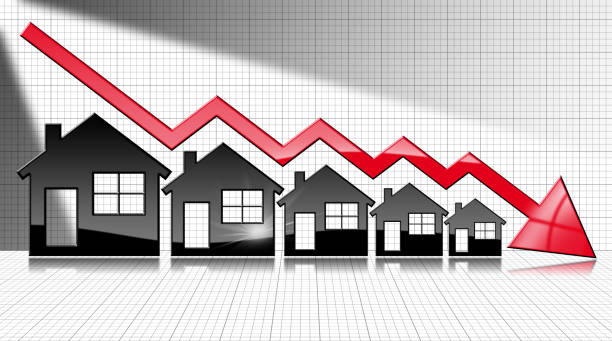What Happens to the Housing Market During a Recession

When economic uncertainty looms, one of the most talked-about subjects is real estate. Whether you’re planning to buy your first home, sell your current property, or invest in rental income, understanding how the housing market behaves during tough times is essential.
A housing recession doesn’t just affect property values—it can shift buyer psychology, freeze lending activity, increase foreclosures, and even alter the long-term outlook of entire neighborhoods. But what happens to the housing market during a recession exactly? What does it mean for homeowners, renters, and future buyers?
This article dives into everything you need to know about housing recessions—how they work, what causes them, and how to navigate the real estate landscape when the economy slows down.
Understanding the Housing Recession
Before diving into what happens to the housing market during a recession, it’s crucial to define what a housing recession actually is.
A housing recession refers to a sustained decline in real estate activity. This includes falling home prices, reduced home sales, lower construction rates, and decreased demand for mortgages. It often coincides with a broader economic downturn—but not always.
Some of the most common signs of a housing recession include:
Decreased buyer demand due to job insecurity or reduced income
More properties on the market, often sitting longer without offers
Builders halting or slowing new construction projects
Tighter credit and lending conditions
Declining home values, particularly in overheated markets
Unlike financial markets, the housing market doesn’t react overnight. Instead, trends unfold slowly—making it vital to monitor long-term patterns rather than day-to-day fluctuations.

What is the Impact of a Recession on Home Prices?
A recession places downward pressure on home prices, but the extent of the impact varies greatly by region and market conditions.
In general, here’s how home prices react during a recession:
Supply exceeds demand: As more sellers try to unload properties and fewer buyers are financially ready or willing to buy, prices start to drop.
Distressed sales increase: Job loss or financial hardship can lead to foreclosures or short sales, which further depress prices in the area.
Overvalued areas suffer the most: Cities that experienced fast price appreciation pre-recession tend to experience more significant corrections.
However, not all areas are equally affected. Markets with strong local economies, limited housing inventory, or a high influx of population may remain resilient. Additionally, lower mortgage rates—common during a recession—can soften the blow by keeping monthly payments manageable even if prices remain stable or fall slightly.
Still, price drops can create buying opportunities for investors and first-time buyers who are well-prepared and financially secure.
What Happens to the Housing Market During a Recession
So, what happens to the housing market during a recession from a broader perspective?
1. Demand Slows
Homebuyers often delay major purchases during economic uncertainty. Concerns about job security, falling investments, and rising inflation lead to reduced activity.
2. Mortgage Lending Tightens
Even though interest rates typically fall during recessions, banks may raise lending standards. Buyers with lower credit scores or unstable income may struggle to qualify for home loans.
3. Inventory Builds Up
As buyer demand drops, homes remain on the market longer. This surplus gives buyers more leverage to negotiate prices and terms.
4. New Construction Stalls
Homebuilders respond to market signals by scaling back new projects. This can help stabilize supply in the long term, but in the short term, it contributes to job losses in construction-related industries.
5. Foreclosures Rise
Recessions often lead to layoffs and income reduction, which increase mortgage delinquencies and foreclosures—flooding the market with distressed properties and further pushing down values.
Despite these challenges, recessions also present unique opportunities. Investors often view recessions as buying windows, acquiring properties at lower prices and selling when the market rebounds.

When is the Right Time to Buy a Home in a Recession?
A common question people ask is: Should I buy a house during a recession? The answer depends on your personal circumstances—but in many cases, a recession can be a smart time to buy.
Here’s why:
Lower Prices: Property values tend to dip, allowing buyers to enter the market at a discount.
Less Competition: With fewer people actively house hunting, you may avoid bidding wars and get better deals.
Motivated Sellers: Homeowners selling during a downturn are often more open to negotiations.
Lower Interest Rates: Central banks cut interest rates to stimulate borrowing, which can mean more favorable mortgage terms.
However, the key is to make sure you’re financially ready:
Do you have an emergency fund?
Is your job secure?
Are you planning to stay in the home long enough to ride out any market fluctuations?
If the answer is yes, a recession could be an ideal time to make your move.
What are the Risks for Sellers During a Recession?
Selling a home during a recession is no easy feat. In most cases, sellers will face reduced demand, longer time on the market, and the possibility of price cuts. Here are some risks worth considering:
Loss of equity: If you bought your home at a high price and need to sell during a downturn, you may walk away with less money—or even a loss.
Market saturation: With more homes on the market and fewer buyers, sellers must compete harder, often through pricing or concessions.
Inspection issues: In a buyer’s market, small problems discovered during inspection could lead to larger price negotiations or even deal cancellations.
Contingent buying: If you’re selling in order to buy another property, you may face challenges on both sides—selling low while buying with limited options.
To mitigate these risks, sellers should work with experienced agents, price homes competitively, and invest in staging or small upgrades to stand out.

Conclusion: Turning Recession into Opportunity
So, what happens to the housing market during a recession? Prices may fall, buyer demand may shrink, and uncertainty may rise—but for those who educate themselves and stay prepared, it can be a time of immense opportunity.
And if you’re ready to take the next step, you’re not alone. At Dwanderful, real estate expert and podcast host Dwan Bent-Twyford offers powerful resources to guide you through both booming and bust cycles of real estate.
At Dwanderful, you’ll find:
A free beginner-friendly book, Real Estate Lingo, which helps you get familiar with essential terms and industry vocabulary.
The “Five Pillars of Real Estate Investing“, a paid, step-by-step guide designed to help you build long-term wealth through smart property decisions.
A fun and insightful quiz game that reveals how you could generate six figures in just six months, whether you’re buying your first property or scaling up your investments. It takes less than a minute and could change how you view your financial future.
Even during a recession, the housing market holds incredible potential. With the right tools, timing, and guidance, you can move from uncertainty to confidence and create a real estate strategy that thrives—no matter what the economy is doing. Contact us now!
Frequently Asked Questions
How long does a housing recession usually last?
Housing recessions generally last between 6 months to 2 years, depending on the causes and the strength of the economic recovery. While the broader economy might bounce back sooner, real estate often lags behind. The 2008 housing crash, for instance, took several years to stabilize, especially in hard-hit markets. Local conditions, government stimulus, and consumer confidence all influence how quickly recovery happens.
Do rent prices go down during a recession?
It depends. In some cities, especially where job losses are significant and people move out, rent prices may decline due to lower demand. However, in other areas where home buying slows and people continue renting longer, rents may stay the same or even rise. Factors like vacancy rates, employment trends, and regional demand play a big role in determining rental prices during a recession.
Can first-time homebuyers benefit from a recession?
Absolutely. A recession can create opportunities for first-time buyers to purchase at lower prices and lock in favorable mortgage rates. Fewer bidding wars and motivated sellers can also give buyers more negotiating power. However, buyers should ensure they have stable employment and financial buffers before entering the market. Planning and education are key to making smart moves during a downturn.


